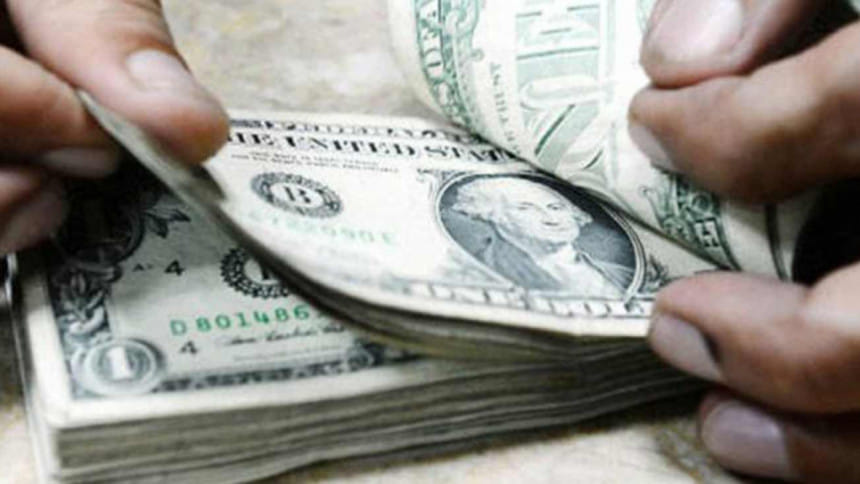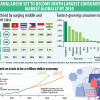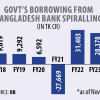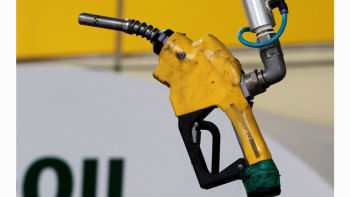What is Bangladesh's current forex reserve?


Ever since Sri Lanka and Pakistan's economic turmoil, Bangladesh's foreign exchange reserves has become a part of public discourse. So much so that despite having an official figure from the central bank every week, people are speculating.
This begs the question: what exactly is the current reserve position?
"According to the latest available data with the IMF, Bangladesh's gross international reserves is about $27.5 billion as per international statistical definitions," Rahul Anand, the IMF mission chief to Bangladesh, told The Daily Star yesterday.
But what is gross reserves? It is reserve assets, as per the IMF's balance of payments and investment position manual (BPM6), which is followed faithfully by central banks around the world. But Bangladesh's central bank is yet to adopt it.
Reserve assets consist of gold, cash US dollar, bonds and treasury bills, reserve position in the IMF, special drawing rights holdings -- which is a form of international money created by the IMF and defined as a weighted average of various convertible currencies -- and so on.
The Bangladesh Bank's gross reserves computation though factors in other components and subsequently, the number ends up being markedly higher.
"As per today's position, our reserve is $34.24 billion and that includes EDF and others," BB's Spokesman GM Abul Kalam Azad told The Daily Star yesterday.
The $7 billion Export Development Fund (EDF), the $200 million Green Transformation Fund, the $385 million Long Term Financing Facility, the guarantee provided for the $480 million loan taken by Biman Bangladesh Airlines, the deposit to International Islamic Trade Finance Corporation (ITFC), the $200 million currency swap with Sri Lanka, the 77 million euro disbursed to Payra Port Authority against the 524.5 million euro loan sanctioned and the below-investment-grade securities are considered as gross international reserves.
"These don't count as reserve assets as per BPM6," said a finance ministry official involved in the meetings with the IMF staff mission. These components amount to about $8.2 billion, he added.
Subsequently, the issue of reserve reporting was discussed at length during the recently-concluded IMF staff mission.
The IMF mission insisted on reporting on gross reserves as per BPM6, The Daily Star has learnt from people involved in the meetings.
Reserve assets "must be readily available in the most unconditional form"; it should be "liquid in that the asset can be bought, sold and liquidated for foreign currency (cash) with minimum cost and time, and without unduly affecting the value of the asset", the IMF said in BPM6.
The mission also called for reporting on net reserves as gross reserves can provide a misleading view of the size of the country's precautionary buffers available to meet potential foreign exchange liquidity needs in adverse circumstances.
In this context, the concept of net international reserves -- gross reserves minus short-term foreign currency drains -- is useful to guide macroeconomic policy advice.
Short-term foreign currency drains include impending import bills and loan repayments.
For countries with less open capital accounts, import coverage is often seen as a relevant measure, highlighting how long imports can be sustained in the event of a shock.
Traditionally, the measure has been based on months of prospective imports, with three months' coverage typically used as a benchmark, according to the IMF.
"There is still 3-3.5 months of coverage," Anand told a press briefing on November 9 after wrapping up the 15-day tour of Bangladesh.
Going by the IMF's number for Bangladesh's gross reserves, the import cover at present is for 4.2 months assuming that the average monthly import bill is $6.5 billion, the finance ministry official said.
"If you include EDF and others, it would be 5.5 months of import," he added.
The central bank though is open to the IMF's methodology for reserve calculation and is planning on adopting BPM6 as early as January, according to officials working on the matter.
"The EDF would be slashed by half, so it would not be a problem to report reserves as per the IMF's methodology," said an official on the condition of anonymity.

 For all latest news, follow The Daily Star's Google News channel.
For all latest news, follow The Daily Star's Google News channel. 








Comments